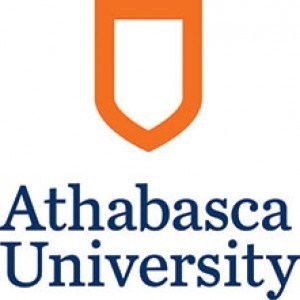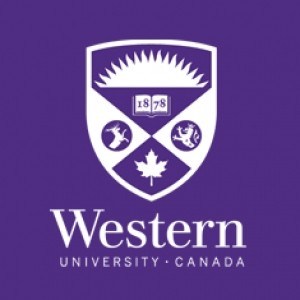Photos of university
Women’s and Gender Studies at Athabasca University offers an interdisciplinary exploration of gender identities, roles, and the social constructs that influence women’s experiences worldwide. This program provides students with a comprehensive understanding of the historical, cultural, political, and economic factors that shape gender relations. Through critical analysis and diverse perspectives, learners examine issues such as gender inequality, feminism, LGBTQ+ rights, and intersectionality, fostering a deeper awareness of social justice and human rights. The curriculum includes courses in gender theory, feminist research methods, and the impact of gender on health, media, politics, and the workplace. Designed for flexibility, the online format allows students to engage with coursework at their own pace, making it accessible to working professionals, community leaders, and individuals seeking personal growth. Graduates of the Women’s and Gender Studies program will be equipped with analytical skills and a nuanced understanding of gender dynamics, preparing them for careers in education, advocacy, social services, policy development, and beyond. This program underscores Athabasca University’s commitment to promoting diversity, equity, and inclusion through accessible education, enabling students to contribute thoughtfully and effectively to contemporary societal challenges related to gender.
The Women's and Gender Studies program at Athabasca University offers an interdisciplinary exploration of gender, sexuality, and women's issues within social, cultural, political, and historical contexts. This flexible online program is designed for students who want to deepen their understanding of gender roles, gender identities, and the socio-political influences that shape experiences across diverse communities. Through a comprehensive curriculum, students examine key concepts such as feminism, masculinity, intersectionality, social justice, and human rights, fostering critical thinking and analytical skills essential for engaging with contemporary gender-related challenges.
The program features a series of courses that cover a wide range of topics, including the history of women’s movements, gender and media, sexuality studies, Indigenous gender theories, and global gender issues. Students also explore the impact of gender on policy-making, education, health, and the workplace, gaining insights into how gender dynamics influence societal structures. The curriculum emphasizes both theoretical frameworks and practical applications, preparing graduates for careers in education, advocacy, community development, policy analysis, and research.
Designed for flexibility, the Women's and Gender Studies program allows students to study at their own pace and balance their education with other commitments. The program is suitable for undergraduate students interested in expanding their perspectives on gender and social justice, as well as for professionals seeking to incorporate gender analysis into their work. With a commitment to fostering diversity and inclusion, Athabasca University’s program provides a supportive learning environment that encourages critical inquiry and respectful dialogue.
Graduates of the program will be equipped with an understanding of the complexities surrounding gender issues and the skills to contribute meaningfully to discussions and initiatives aimed at equity and social change. Whether pursuing further academic work or seeking to make a positive impact in their communities, students in this program develop a nuanced perspective on gender that is informed by current research and diverse global perspectives. By combining theory and practice, Athabasca University’s Women’s and Gender Studies program prepares students to become informed, engaged, and socially responsible citizens dedicated to advancing gender equality and social justice.
Program Requirements for Women's and Gender Studies at Athabasca University include a comprehensive curriculum designed to provide students with critical understanding of gender theories, social justice issues, and feminist perspectives. Students are required to complete a total of 15 courses, amounting to approximately 45 credits, to earn the Bachelor of Arts in Women's and Gender Studies. The program offers a mix of mandatory and elective courses that cover diverse topics such as gender identity, intersectionality, feminist research methods, and global gender issues. Foundational courses typically include Introduction to Gender Studies, Gender and Society, and Feminist Theory, which establish core concepts and analytical frameworks. Students must also take advanced courses in areas like queer studies, women’s history, and gender and media to deepen their understanding and develop critical thinking skills. Additionally, the program emphasizes experiential learning through capstone projects, research assignments, and possible internships that enable students to apply their knowledge in real-world contexts. To ensure a well-rounded education, students are encouraged to select electives from related disciplines such as Sociology, Psychology, and Indigenous Studies, fostering interdisciplinary perspectives. Language proficiency in English is required, and students must meet university admissions standards to enroll. The program is flexible, allowing part-time study to accommodate working professionals and those with personal commitments. Prior learning assessments and transfer credits may also be considered to facilitate degree completion. Throughout their studies, students are supported by academic advisors who assist in course selection and career planning, preparing graduates for careers in social services, advocacy, education, and public policy sectors focused on gender equity and social justice initiatives.
Funding for the Women’s and Gender Studies program at Athabasca University is primarily pursued through a combination of federal and provincial student financial aid programs, scholarships, and bursaries. As a distance education institution, Athabasca University offers flexible payment options and financial assistance programs tailored to meet the needs of distance learners. Students enrolled in the program are encouraged to explore government-funded student aid, such as Canada Student Loans and Grants, which can provide crucial financial support based on financial need and academic load. Furthermore, Alberta students may be eligible for Alberta Student Aid, which supplements federal funding. Athabasca University also offers internal scholarships and awards specifically for women and gender studies students, aiming to promote diversity and inclusion within the academic community. Scholarships are awarded based on academic achievement, financial need, or demonstrated commitment to gender issues and social justice. Students are advised to regularly check the university’s financial aid webpage for updated opportunities, deadlines, and application procedures. Additionally, students often supplement their funding through part-time employment, online work, or grants from community organizations supporting women's rights and social justice initiatives. Certain external foundations and organizations may offer fellowships or grants aimed at students studying women’s and gender studies or related fields. Athabasca University’s flexible study options allow students to manage their work, volunteer, and study commitments effectively, which can enhance their ability to finance their education through continuous employment. International students should explore specific scholarship programs for international applicants, as well as external funding sources relevant to their home countries. The university also provides guidance and resources on financial planning and literacy to help students budget effectively throughout their studies. Overall, while formal institutional funding specific to the Women’s and Gender Studies program is limited, the combined availability of government aid, university scholarships, external grants, and employment opportunities create a comprehensive support network for students pursuing this field of study at Athabasca University.
Women’s and Gender Studies at Athabasca University is a comprehensive program dedicated to exploring issues related to gender, sexuality, and social justice. The program emphasizes critical thinking and cultural understanding, providing students with the knowledge and skills necessary to analyze gender-related issues across a variety of contexts. Through interdisciplinary coursework, students examine the ways in which gender influences personal identity, societal structures, and global dynamics. The program is designed for flexibility, allowing students to study part-time or full-time, making it accessible to working adults and those with other commitments. Courses cover topics such as feminist theories, LGBTQ+ studies, gender in media, and gender and globalization, among others. This program aims to empower students to become informed advocates for equality and social change. Graduates of the program are well-equipped for careers in education, social services, policy development, community activism, and more. The program benefits from Athabasca University’s focus on distance education, utilizing online platforms to facilitate interactive learning environments and support students regardless of their geographic location. The curriculum also encourages interdisciplinary approaches, enabling students to apply gender analysis across disciplines including history, literature, sociology, and political science. The faculty involved in Women’s and Gender Studies have diverse expertise and are committed to fostering an inclusive and engaging learning environment. Students have access to various resources, including academic advising, research support, and online libraries, to enhance their educational experience. Overall, this program is designed to build critical awareness about gender issues, promote social justice, and prepare students to contribute meaningfully to society in various professional contexts.



